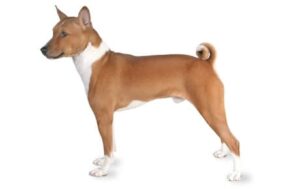Many factors can affect the health of your dog. Getting the proper nutrition, daily exercise, clean shelter, appropriate grooming, and really vet checkups are just part of the routine. Affection and including your dog in your family circle also affects the overall health of your pet.
There are some factors, however, that are predetermined by genetics. How long a dog can live and which diseases they might be more prone to are affected by genetics, not care. Brachycephalic breeds, with their short snouts, tend to have more respiratory problems. Terriers tend to have dental issues. Some dogs, such as labs and golden retrievers, have more potential toward skin allergies.
Every dog is unique. Even if the breed has a tendency toward certain problems, the particular puppy you pick may never manifest them. Making sure that the dam and sire have been health screened is important and can give a measure of assurance that your puppy will potentially be the healthiest possible for that breed.
Certain breeds, however, lean more toward good health and long life more than other breeds. These include, but are not limited to, these breeds listed below. These are not in any particular order.
- Australian Shepherds

Prone to chase everything in sight, they live 13-15 years. They have a tendency toward hip and eye issues, as well as certain cancers.
- Beagles

Known for their keen sense of smell and hunting skills, they live 10-15 years. As they age, they are prone to eye and hip problems.
- Poodles

Highly intelligent and athletic, they live 15-18 years. They are prone to joint and eye issues.
 Chihuahuas
Chihuahuas
With lots of spirit and loyalty, they are very intelligent and live up to 20 years. Sometimes they have heart and eye issues, as well as patellar luxation (loose kneecaps).
- Greyhounds

Known for speed, they live 10-13 years. They are prone to bloat and gastric torsion (twisting of the stomach caused by eating too quickly), so their eating should be monitored.
 Australian Cattle Dogs
Australian Cattle Dogs
Athletic and intelligent, they love to be on the move. They live 12-16 years and sometimes have joint and ligament issues due to their active lifestyle.
- German Shorthair Pointers

With lots of energy and known for their hunting skills, they live 12-14 years. They are prone to hip and eye problems, as well as certain heart diseases.
 Havanese
Havanese
Small and social, they live 14-16 years. Some are prone to hereditary deafness.
- Basenji

Intelligent hunting dogs, they have an almost cat-like nature. They groom themselves like a cat and make a yodeling sound rather than a bark. They live 13-14 years. They have a tendency toward hypothyroidism and hip problems.
 Border Collie
Border Collie
Highly intelligent and physically active, border collies tend to live 12-15 years. They have a tendency toward deafness and epilepsy.
- Siberian Husky

Known for strength and endurance, they have lots of energy and need daily exercise. Only a few are prone to eye problems and hip issues, but this can be prevented with health screenings. They live 12-15 years.
Each dog is unique, even within a breed. If you want a healthy dog, look to the parents for their genetic history and then give your dog the proper care with good nutrition and exercise and most importantly love.



